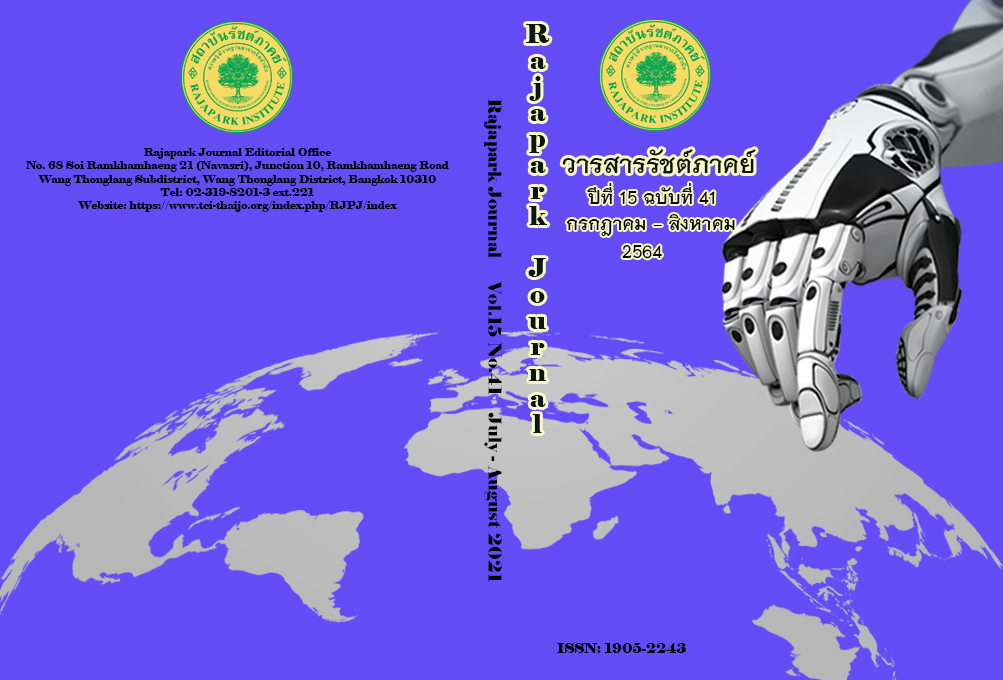The Project Evaluation of Career and Life Skills Management in the 21st Century Project of Banchalong School under The Primary Educational Service Area Office Phuket
Main Article Content
Abstract
The objectives of this study were to evaluate: 1) the context; 2) the input; 3) the process; and 4) the product of career and life skills management in the 21st century project of the Banchalong School under The Primary Educational Service Area Office Phuket. The study used Stufflebeam’s CIPP Model for project evaluation model. The target groups of the study, which made a total of 619 respondents, included five school administrators, 30 teachers or educational personnel, 15 school board members, and 569 teachers. Data were collected using a score table and four questionnaires with the reliability of 0.725 – 0.965 and were analyzed for percentage, mean, and standard deviation. The research findings were as follows: 1) The overall context evaluation of the project showed that the context was highly suitable; 2) The overall input evaluation of the project showed that the input was highly suitable; 3) The overall process evaluation of the project showed that the process was suitable in the highest level; and 4) The overall product evaluation of the project showed that the post-test score regarding the career and life skills management in the 21st century and the implementation of Philosophy of Sufficiency Economy in the daily life of the students was higher than the pre-test score by 60 percent. The overall satisfaction towards the project was at a high level. When compared to the criteria, all four aspects were considered to pass. The career and life skills management in the 21st century project of the school should be continuously implemented.
Article Details
Views and opinions appearing in the Journal it is the responsibility of the author of the article, and does not constitute the view and responsibility of the editorial team.
References
Bellanca, J., & Brandt, R. (2010). 21st Century Skills: Rethinking How Students Learn. Bloomongton: Solution Tree Press.
Chaiyathon, S. (2018). Life Skills Development for Early Childhood Phychomotor Domain by Using Folk Tales with Local Matersials Puppet. Veridian E-Journal, Silpakorn University (Humanities, Social Sciences and arts), 11(3), 1211-1226.
Chaochan, S. (2012). System Evaluation Research Project to Introduce the Principles of the Sufficiency Economy into Practice in Schools for Ban Nong Daeng Sahamit School. Maha Sarakham: Ban Nong Daeng Sahamit School.
Cronbach, L. J. (1990). Essentials of Psychological Testing (5th ed.). New York: Harper Collins Publishers.
Donham, W. B., & Whitehead, A. N. (1931). Business Adrift. New York: McGraw–Hill.
Ripuritthichai, P. (2006). The Evaluation Research for process development to practicality Watbanpong Samakkeekhunupatham School Ban Pong District Ratchaburi Province. Master of Education. Muban Chom Bueng Rajabhat University.
Sriyotha, D. (2010). The Evaluation Research Agriculture of Life and The New Sufficiency Economy Philosophy Ban Pongneeb School (Academic Achievements). Loei: Ban Pongneeb School.
Stufflebeam, D. L. (2003). The CIPP Model for Evaluation. International Handbook of Educational Evaluation, 9, 31-62.
Suwanmonkha, S., Usaho, C., & Suwannatthachote, P. (2011). Approach of Basic Education Management to Careers. Bangkok: Faculty of Education, Chulalongkorn University.
Thongchua, N., & Wannasian, D. (2014). The New Paradigm for Quality Development in Private Schools Accordance with the Proposals for The Second Decade of Education Reform (2009-2018). Suan Dusit Graduate School Academic Journal, 9(2), 55-62.
Thongrod, W., & Rattanasiraprapha, N. (2012). School Based Management and Learning Experience for Early Childhood in Municipal Schools of Local Education Group 1. Journal of Educational Administration, Silpakorn University, 3(1), 60-68.


